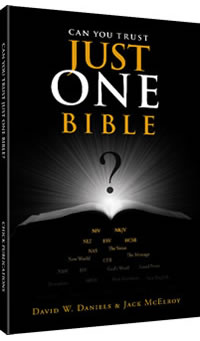Why does Gen. 42:25 refer to corn, when corn is a new world crop?

© 2001 by David W. Daniels
Question: Why does Gen. 42:25 refer to corn, when corn is a new world crop? Europeans did not know of its existence until the 16th century. Surely that must be a mistranslation by the KJV translators, because the Jews would have not known about corn.
Answer: That is a question most USA citizens would also have. The fact is that the word "corn" comes from a word, meaning "grain" and related to "kernel." In the USA, the Native Americans helped the European settlers plant maiz (pronounced, "maze") that we later called "corn". Here's some of what Webster wrote on this in his 1828 dictionary:
- A single seed of certain plants, as wheat, rye, barley and maiz; a grain. It is generally applied to edible seeds, which, when ripe, are hard.
- The seeds of certain plants in general, in bulk or quantity. In this sense, the word comprehends all the kinds of grain which constitute the food of men and horses. In Great Britain, corn is generally applied to wheat, rye, oats and barley. In the United States, it has the same general sense, but by custom, it is appropriated to maiz.
Over the years, the residents of the New World used the term corn for maiz (or maize). All maiz is corn, but not all corn is maiz. Therefore, the King James Bible is not talking about our maiz or corn at all. It is talking of different kinds of grain, specifically wheat, rye or barley.
The King James translators made no mistake 102 times in their proper translation "corn." It is the New World citizens who have mistakenly applied our "maiz" to the Biblical "corn."
May God richly bless you as you read and study further into His preserved words in English, the King James Bible.
- See more articles on related topics:
- Bible Versions
- King James Bible
- Bible Translation
Products of interest:
-

Answers to Your Bible Version Questions
224 pages
David W. Daniels answers difficult questions about the KJV. Learn how to defend the KJV and why you can trust it. -

Can You Trust Just One Bible?
160 pages
Answers to the most common anti-KJV accusations. -

Did the Catholic Church Give Us the Bible?
208 pages
The Bible has two histories. One is of God preserving His words through His people. The other is of the devil using Roman Catholic "scholars" to pervert God’s words and give us corrupt modern Bibles. -

Why They Changed the Bible
228 pages
See who is behind the gradual changing of modern Bibles. There’s no guessing about what these people believe. They will tell you, in their own words!
